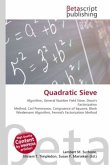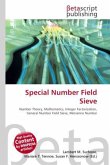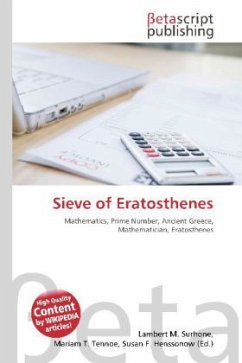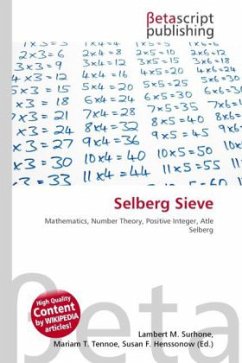High Quality Content by WIKIPEDIA articles! In mathematics, the sieve of Atkin is a fast, modern algorithm for finding all prime numbers up to a specified integer. It is an optimized version of the ancient sieve of Eratosthenes, but does some preliminary work and then marks off multiples of primes squared, rather than multiples of primes. It was created by A. O. L. Atkin and Daniel J. Bernstein. The algorithm completely ignores any numbers divisible by two, three, or five. All numbers with modulo-sixty remainder 0, 2, 4, 6, 8, 10, 12, 14, 16, 18, 20, 22, 24, 26, 28, 30, 32, 34, 36, 38, 40, 42, 44, 46, 48, 50, 52, 54, 56, or 58 are divisible by two and not prime. All numbers with modulo-sixty remainder 3, 9, 15, 21, 27, 33, 39, 45, 51, or 57 are divisible by three and not prime. All numbers with modulo-sixty remainder 5, 25, 35, or 55 are divisible by five and not prime. All these remainders are ignored. All numbers with modulo-sixty remainder 1, 13, 17, 29, 37, 41, 49, or 53 havea modulo-four remainder of 1. These numbers are prime if and only if the number of solutions to 4x2 + y2 = n is odd and the number is squarefree (proven as theorem 6.1).
Bitte wählen Sie Ihr Anliegen aus.
Rechnungen
Retourenschein anfordern
Bestellstatus
Storno








